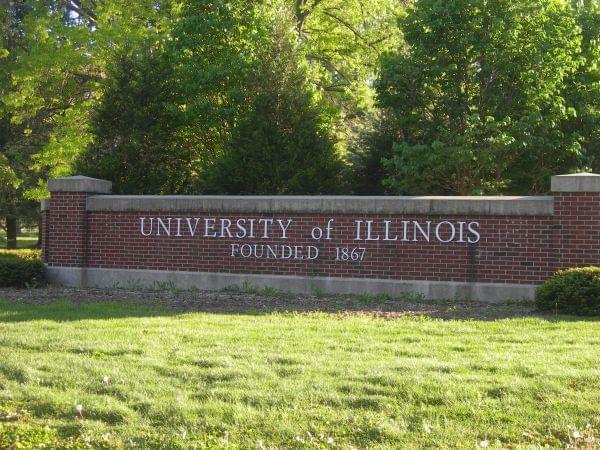When U Of I Policy Conflicts With Sexual Misconduct Reporting; End Of Life Planning And Care; ‘What Is The Midwest?’ Exhibit

Jimmy Emerson/Flickr(CC BY-NC-ND 2.0)
The University of Illinois says reporters at the NPR station in Springfield must tell them when people come forward with stories of sexual misconduct. That’s because these public radio journalists are, in fact, university employees. Plus, Americans say they’d rather die at home than at a hospital. But it’s much more complicated than that, especially when there aren’t clear plans for end of life care. And, a new exhibition at Chicago’s Newberry library sets out to answer the question, “What is the Midwest? using historic maps, journal entries and photos from the past 200 years.
NPR Illinois Sexual Misconduct Reporting And University Of Illinois Title IX Mandate
About two-thirds of all local NPR stations are affiliated with a college or a university. These stations are independent of those schools and most of the time, university rules don’t get in the way of reporters doing their jobs.
But now, a disagreement between NPR Illinois in Springfield and the University of Illinois is making national headlines. And it’s about whether journalists can promise confidentiality when they report on stories of sexual misconduct.
For months, NPR Illinois reporters have been investigating sexual misconduct at the U of I. But those same reporters are also employees of the U of I system and are subject to a policy that requires them to tell the university when these incidents happen.
We spoke with NPR Illinois reporter Mary Hansen. She’s also the local editor for their sexual misconduct reporting. Katie Mangan also joined us, she's a senior writer with the Chronicle of Higher Education.
We invited the University of Illinois to come onto the show for an either live or pre-taped conversation. They did not respond to that request, but they did issue a public statement. Read the full statement here.
In part, it says, “We realize that having journalists who are also university employees creates a unique situation, and we are committed to working on a solution to support two very important interests.”
"The goal is to insure that cases of sexual misconduct are not swept under the rug," says Katie Mangan from @chronicle.
— The 21st (@21stShow) November 14, 2019
"But, some have complained that this reporting requirement has had a chilling effect on those wanting to report." https://t.co/n4O8O9eGoO
End Of Life Planning And Care
Most of us do not like thinking about death, or how the end of our lives — or the lives of our loved ones — are going to play out. But the reality is: it’s unavoidable. And now, more people are dying at home than at the hospital with the hope of a peaceful death, surrounded by loved ones. But even with the best pre-planning, things can get complicated at this very stressful time.
More and more Americans are choosing hospice: an industry that has grown exponentially over the last few decades to help them navigate end of life care.
But there are many misconceptions about: what hospice care is and isn’t, what it can be like to spend the end of your life at home, or step into the role of caregiver for a patient who is a loved one.
Blake Farmer is a senior health care reporter with Nashville Public Radio. He is working on a series about hospice care called “The Cost of Dying.” Susan Sidell is a retired hospice nurse in Evanston, Illinois who now sees hospice patients as a volunteer.
Susan recommends utilizing services like The Conversation Project with your loved ones when discussing end of life care. She says above all, just try to start a dialogue.
— The 21st (@21stShow) November 14, 2019
More info on them below: https://t.co/nKGTwNfbNK
'What Is The Midwest?' Exhibit
What comes to mind when you try to define the Midwest? Maybe, you bristle at terms like “flyover country” or America’s “heartland.”
Even though the Midwest often gets lumped together as one place, as a whole, it can be hard to define.
Now, the Newberry Library in Chicago has a new exhibition that is exploring a pretty big question. It’s called “What is the Midwest?”
This exhibition will be at the Newberry Library until Dec. 31. Alice Schreyer is the vice president of Collections and Library Services at the Newberry Library. Analu Lopez is the Indigenous Studies librarian for the Newberry.
"There are many railroad routes now that criss cross the country," says Alice Schreyer, "but you can also see very clearly the north south railroad that was essential to the Great Migration."
— The 21st (@21stShow) November 14, 2019
The @NewberryLibrary has employment cards (1926-68ish) from the Pullman Company. pic.twitter.com/xAWFvQMQ3a

